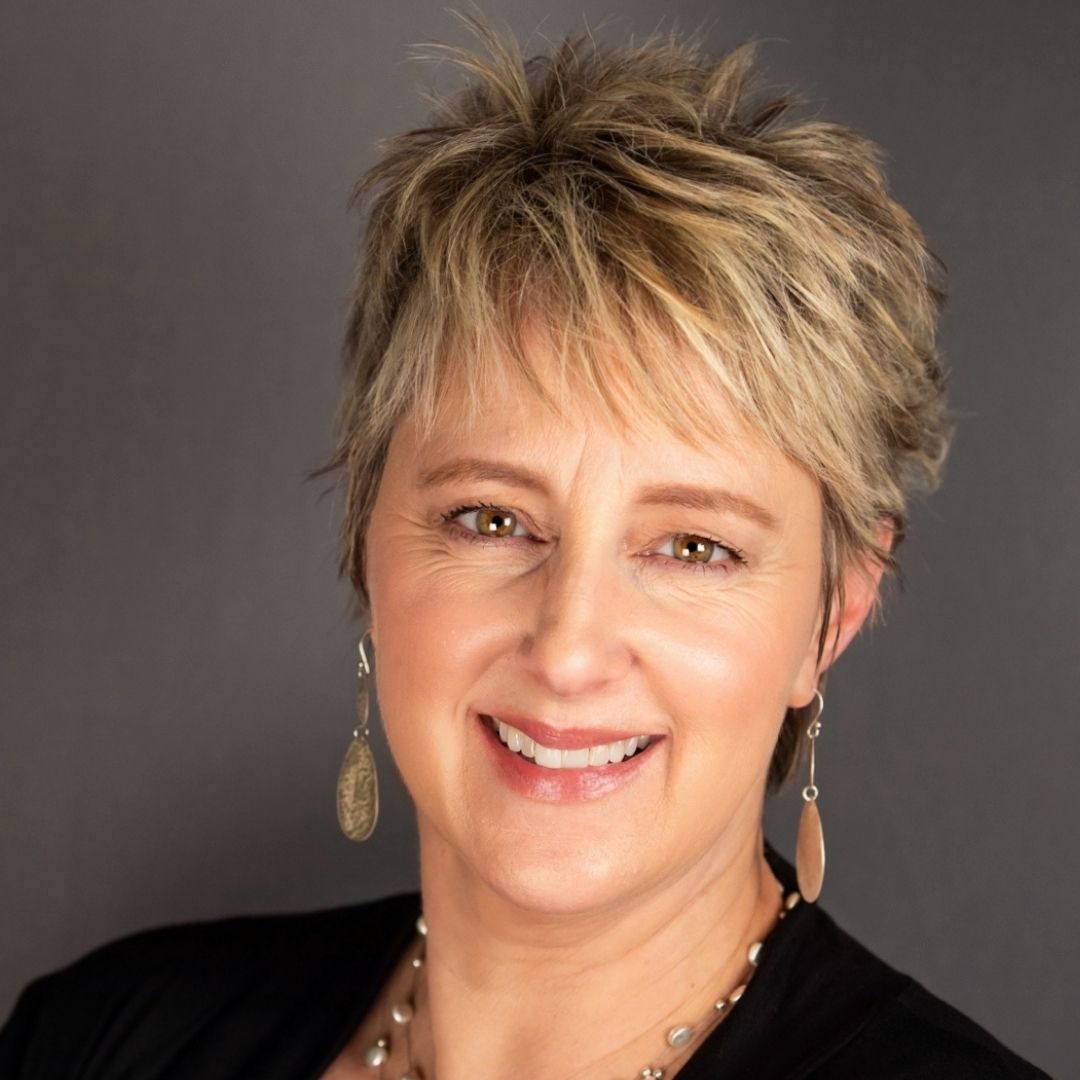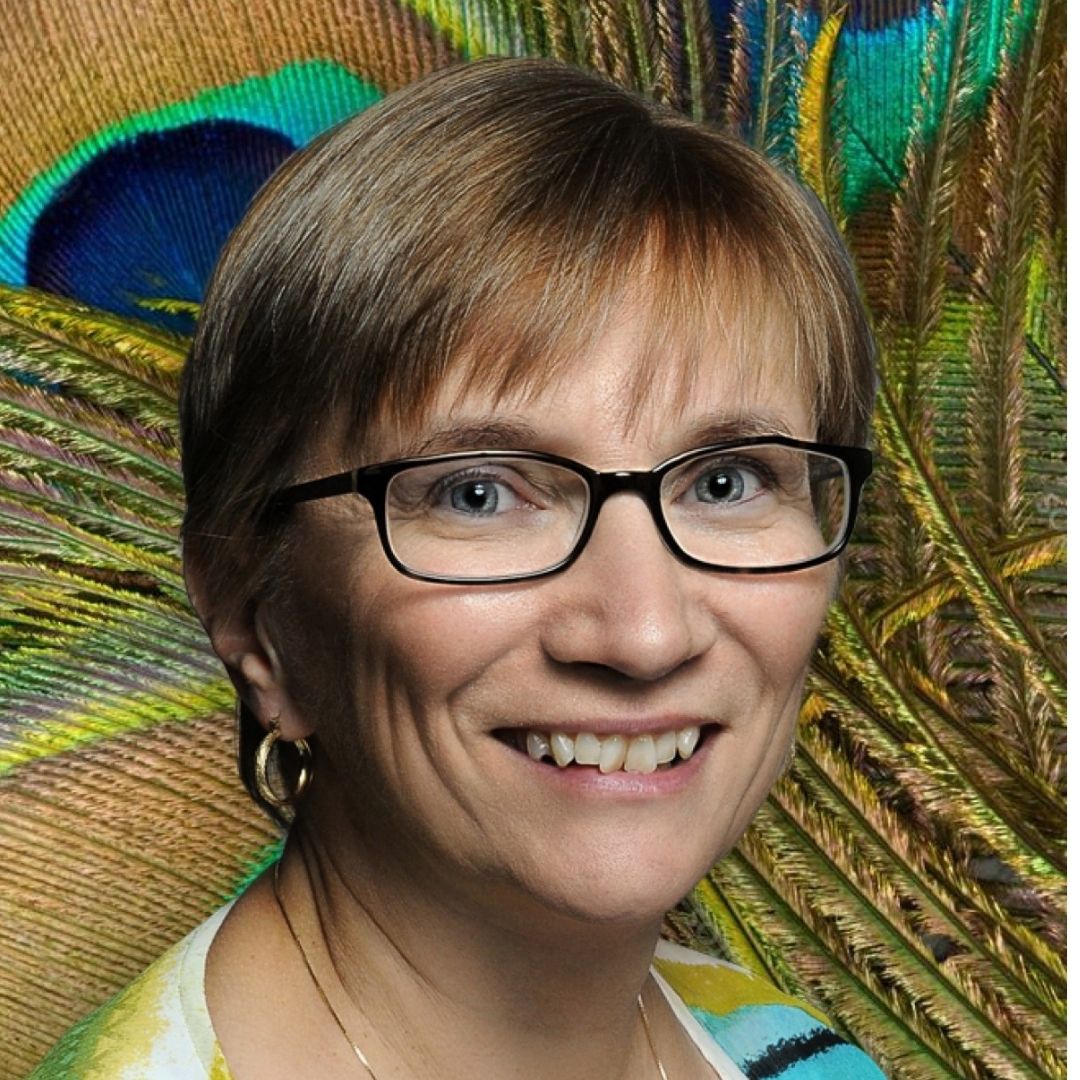Last updated on September 27th, 2023
Featured image: Have some travel dreams you want to make a reality, like visiting Cusco in Peru? A travel advisor can help! | Photo by t:andresr on iStock.
How travel advisors can help solo travellers navigate uncertainty
By Carolyn Ray, Editor, JourneyWoman
Every day, we are inundated with changing regulations, new travel apps, testing changes, not to mention weather, natural disasters, and political situations. Our world is much more complex than it was two years ago. One that really tests all of our patience when we make a decision to travel.
While we may not want to use a travel advisor for every situation, there are times when I’ve recommended using one, particularly for those women taking their first post-pandemic trip, trips with several connections or inter-country travel. Travel advisors do more than just book travel, they can also help you navigate unrelenting change, find deals and discounts, and unravel the complexity of travel insurance. That last point alone is enough to make me pick up the phone!
Another key benefit is peace of mind. When I took my first international trip to walk the Camino de Santiago last October, I used Flight Centre to book my travel, which took me through four countries: Canada, Switzerland, Germany and Spain. This was still the wild west of pandemic travel, and I had enough to worry about between vaccine apps and testing. Even though I could have booked my flight on points, I decided to take one less worry off my plate. I’m glad I did, because mid-way through my Camino, my flight home was cancelled, a fact I wasn’t aware of until I arrived in Santiago de Compostela and turned on my cellular service. By then, my agent had booked me on another route home, checked me into a hotel in Germany and ensured my vaccination test would still be valid. My travel insurance covered the unexpected cost of the hotel and I didn’t miss a step on my Camino.
The evolving role of travel advisors
In March, we hosted a webinar with three certified travel advisors from the US and Canada to talk about some of the shifts in travel and how their role has changed. After the webinar, 85 per cent of participants said they would use a travel advisor going forward.
In a world where everything is impersonal and online, these women demonstrated why the human touch is not, as some would have you believe, antiquated. Collectively, they have over 80 years of travel experience, and have seen it all. In my view, any entrepreneurial business still standing after the last two years deserves a lot of consideration and support.
When the pandemic started, these travel agents became superheroines. They had to find people, rebook flights, issue future travel credits, and help clients get refunds through travel insurance companies.
“Basically, we had to find everyone, fix everything, get refunds, and just try to stay in control and breathe through the whole thing,” said Carmelina Pirrocco-Crawford, a senior vacation specialist at McTavish Travel in Ontario. As a travel specialist for almost 40 years, Pirrocco-Crawford helps clients build their dream vacations, with expertise in destination weddings, adventure travel and cruises.
“I was fortunate that I only had a handful of clients that were traveling at the time,” said Ohio-based advisor Trish York, of Trish York Travel, a full service travel agency specializing in custom trips to Europe, including independent travel, river cruises and small group travel. “One client happened to be in Morocco and Spain and they were in a panic. It took me three days to try to get them flights because every time I booked the flight, their connecting flight got canceled. When I finally got them a flight, I had to call the hotel at 4 am and say, go wake them up, tell them to pack – their driver’s going to be there in two hours and they’re flying home today.”
Sheila Gallant-Halloran, owner of Lush Life Travel in Ontario, helps mature and solo travelers live their lush life and calls herself a ‘happiness actuary’, specializing in river cruises and bucket list adventures.
“We were thrown into the middle of the biggest chaos we had ever seen,” Gallant Halloran remembers. “People in travel have been through all kinds of chaos, between SARS and Ebola and terrorist attacks. We thought we had seen every kind of iteration of the problem and knew how to respond. But this became something else, huge. Something else very quickly.”
In a world where advisors are typically compensated at the end of travel, the travel world was thrown upside down. A booking that was originally expected to take 10 hours expanded into 40 hours or more.
“We were working hours and hours to protect our clients, get them home, try to save the industry,” recalls Gallant-Halloran. “It was put on our shoulders to rebook, get clients refunded, advocate for them, all with little or no revenue, all with little or no government support. It has been a tremendous two years.”

Carmelina Pirrocco-Crawford, McTavish Travel

Trish York, Trish York Travel

Sheila Gallant-Halloran, Lush Life Travel
Six reasons you should consider hiring a certified travel advisor
1. They do more than just book travel
For some, the terminology of ‘travel agent’ evokes antiquated images of the 1970s, with Chargex cards and call centres. As travel has become more complicated, so too has the role of the person advising us about travel.
“I think when you start out in this business, you automatically call yourself a travel agent,” says Gallant-Halloran. “As time goes by, and you end up with a lot more experience, you graduate to a travel consultant, and then you graduate to a travel advisor. I specialize in all kinds of travel, so I call myself a travel specialist. The only thing that I do say is really connected to the word agent, are people who book only airline tickets. But at the end of the day, I think it’s the label that you’d like to call yourself, that you feel most comfortable in.”
“I would agree with that,” says York. “Traditionally, before the agent role used to be maybe seen as an order taker, of sorts. But as the profession has developed, we have become more of an advisor role, where we really listen to the clients. And we try to match the best destination and the best travel experience to what our clients are looking for.”
“’Agent’ to me is very much a transactional role, if you’re looking for me to complete a booking or make a booking,” Gallant-Halloran says.” I work with my clients to advise them, much as a financial advisor would advise them between a certain stock portfolio or high growth portfolio, whatever they’re looking for.”
She continues: “I help my clients figure out what’s important to them and making decisions about their trip. A travel advisor’s job is really to help you make the decisions. People focus on all the bits and pieces that go into a decision where, when and how. But the travel advisor really comes in and says, well, I know all the details, and I can help you figure out which company is the right one or which segment or which order how you want to go. And it’s really that advisory role that’s important. I’m not just here because I’m better at Google.”
“It’s a lot more than just booking – the booking is just one small piece of the trip,” says Pirrocco-Crawford. “It’s all the conversation before we get to the booking, then it’s the booking, then it’s actually being your guardian angel when you’re traveling and help you with all the problems that come.”
In the past, travel agents or travel advisors were only paid a commission by a supplier to represent their product. However, that model did not cover the work advisors did for the client.
“I do an awful lot of work for the client both before, during and after a trip. For the services I provide the client, the commission I got from the supplier was no longer sufficient to cover that,” says Gallant-Halloran. “I’m not providing a favor to clients by working with them. I’m giving them a service. I’m assisting them and making their decision. I’m helping them by sharing all my expertise and all of my connections. And I do charge a fee. The fees I charge are going to differ depending on the scope and the man hours of the work that I’m doing for the client.”
2. They have access to information you don’t
While we’re all suffering from information overload, step into the shoes of a travel agent, who receives hundreds of alerts every day from travel and tourism organizations from around the world, and relationships with on-the-ground travel suppliers around the world, which can also result in deals and discounts the general public may not be aware of.
“I get alerts throughout the day – the latest update on what’s happening in Italy, this is what’s happening in Costa Rica, this is what’s happening in Hawaii,” says Gallant-Halloran. “If a travel advisor sat at their desk and worked on a file and turned off their email for an hour or two, they’d come back to easily 100 emails. Ten might be from clients and the rest are alerts and information. We have to stay on top of that and keep abreast of that because we have to be constantly aware of what’s changing. The world has changed so many times with COVID. Entry requirements, exit requirements, testing requirements.”
“Our industry has its own trade papers, and we also get alerts also from all the tourist boards and the hoteliers, the airlines, government officials, they all hit our screens,” Pirrocco-Crawford says. “It’s too bad we don’t have one computer that just says alerts. And then the other one for us to work on.”
To see an example of what Sheila Gallant-Halloran receives daily, read her Facebook post here.

Using a travel advisor can help you focus on other important details, like packing / Photo by choreograph on Envato
3. They can guide you through uncertainty
The uncertain situations in Ukraine and other parts of the world can cause a great deal of anxiety about travel. Because they have access to more information and connect through professional organizations, travel advisors have a broader perspective and usually know things before the media and general public.
“Certainly Baltic Cruises have been cancelled right now, and a lot of cruise lines are canceling,” said Lush Life’s Gallant-Halloran. “We don’t want to put our clients at risk, we don’t want to put us at risk, we’re going to take all due precautions, we’re not going to put people in a situation where we can’t control it.”
She continues: “But none of us have a crystal ball in terms of what’s happening. If I have someone who is really uncomfortable, and their final payment is close, I might speak to the partner and see if we can push out the cruise final payment, or if they’re really uncomfortable, see if we can move it to an alternate date.”
“Most of my clients have already said, I’ve had enough, I’m going and revenge travel seems to be winning over non revenge travel,” said McTavish’s Pirrocco-Crawford. “We’ve been through everything – we’ve been through hurricanes, tornadoes, we’ve been through this, we’ve been through that we just got through two years of this. And looking at what is happening in Russia. People are just thinking, okay, I’m still going do what I want to do. But I’m just going to be cautious of where I choose to travel.”
4. They can offer alternative options for travel
The world is a big place. For those who might feel anxious, there are always alternatives. All three advisors have suggestions to make clients comfortable. One option is to shift away from Europe and consider South and Central America.
“I’m doing a lot more South and Central America, Paul Gauguin,” says Pirrocco-Crawford. “They’re still traveling but instead of an Eastern Europe trip they’re saying, well, I still want to do a cruise. But now push me over to another part of the world.”
They also see differences between regions.
“Americans were booking more during the pandemic, and Canadians were a little bit more cautious, mostly because the Canadian government said ‘do not travel’,” says Pirrocco-Crawford. “Within Canada, I’ve seen that people in Newfoundland and Victoria are more cautious than some people in Ontario. And then people in Quebec are traveling more. People in Alberta say ‘I’m going, I don’t care.’”
“For the US, Mexico has been huge for the last two years,” says York. “People have been booking Mexico. Americans have been going to Mexico like crazy.

Mexico has exploded in popularity and is a perfect for longer stays, another key travel trend / Photo of Uxmal by Carolyn Ray
5. They can help you unravel travel insurance
Despite attempts to explain travel insurance, the industry has not been successful communicating the variations that exist. Travel advisors, however, are on top of these changes.
We recommend travel insurance, particularly for complex, out-of-country trips. It is age dependent but there are many options available in the US and Canada. To compare prices, check insuremytrip.com and TuGo. Read the policies and call and ask questions.
“A trip is an investment – it’s an investment of your time, it’s an investment of your money,” says York. “If you have to cancel this trip, are you willing to lose $20,000? If you couldn’t get this money back, are you willing to lose it? Everyone plans to go on their trip. But life happens. You get called to jury duty, you get in a car accident, your mother gets sick. With travel protection, you can end up canceling and get your funds back.”
“In Canada, we have very strict rules and regulations about who we can sell insurance to,” says Gallant-Halloran. “I’m in Ontario, I can’t sell to people in Newfoundland or Alberta, which is kind of ludicrous. But there we have it.”
“When I first started, I had a client who wanted to take his wife who just had their third baby on a very special trip to London. They were going to O2 to see a concert. And I said, OK, Jim, you really should buy insurance. He’s said, nope, I got the grandparents lined up, the kids are all set, the wife has to be celebrated for this third baby, there’s no way in hell I’m not going on this trip. The concert was to go to O2, to see Michael Jackson. Michael Jackson died. The trip got canceled.”
“You can get annual plans in Canada,” says Gallant-Halloran. “And we do typically have dollar amount limits or time stay limits. With annual plans, you have to be very careful with two is that they often have a per trip limit. So, your advisor would talk to you about that. And then you have to get into the situation where you’re buying top ups.”
TIP: If you buy an annual plan, most policies only cover 30-day trips so you will need to buy a top up. Check for insurance options here.
TIP: Check your credit card and personal insurance to find out what you’re NOT covered for.
“If you want to use again, your credit card, or you’re part of the school board or a government employee, what you don’t have 90 percent of the time is any COVID coverage,” says McTavish’s Pirrocco-Crawford. “Buy the COVID insurance, which is really not expensive, just for peace of mind. And that COVID insurance will only cover you while you’re at destination. If something happens and you don’t go on that trip, or you cancel that trip, but as long as you haven’t left, that COVID-19 insurance with Manulife is refundable.”
For more information on the importance of travel insurance, check out this article here.
6. They see shifts in the market first
Travel agents are on the front lines of shifts in travel, like long stays, slow travel and smaller group tours. Here are four others to consider:
Bigger bucket trips: “I’m seeing people book bigger trips,” says Gallant-Halloran. “We’ve been home for two, three years, we’ve been alone, my solo travelers especially, they want to take the big trip the bucket list trip, you haven’t spent your travel budget for two years, so you have a bit more money to spend on travel as well.
“One of my clients was 70 at the beginning of the pandemic, she lost her husband just before she had planned to travel from 70 to 80. She was going to take whatever trips she could, while she still was in good health, didn’t have to worry about walking issues, those kinds of things. Now she has to go back and look at her list. She said: ’ I’m going to take the biggest trip first, the longest trip, the one that’s going to be the most if I use the phrase, if I died tomorrow, which one would I be really upset that I didn’t take that one first.”
More meaningful trips. “I’m finding clients are looking at more meaningful trips, something that I’m going to get more out of emotionally, mentally, that type of thing,” says Pirrocco-Crawford. “Also, families haven’t traveled in three years. Instead of just mom, dad and a couple of kids. It’s mom, dad, brothers, sisters, cousins, parents, my kids bringing their friends and all the rest of it and they’re renting houses and villas, and again, more meaningful. And yes, a lot of people are taking longer trips, bigger trips, but I’m finding something more meaningful.”
More multi-generational trips: “I’m seeing of bringing the grandparents along more so than I did previously,” says York. “Europe is always big trips for people, they usually go at least 10 days. Most of them now are stretching into three weeks if they can do it. I’m not seeing as many changes but definitely more people.”
Longer small ship expeditions and river cruises: One example of this is a 180-day Oceana cruise that sold out in 30 minutes. Or a 45-day river cruise that sold out.
“Seven rivers, different companies putting together,” says York. “We’re seeing the bigger trips, river cruising and expedition cruising in particular are really taken off to. I don’t specialize in the really large mega ships. I do more small ship, river cruise, expedition ship, but they are more popular anyway in a post pandemic world because it’s more intimate. The largest river cruise ship has 180 people. And you have to be vaxxed, double vaxxed, triple vaxxed depending on the country.

Smaller river and expedition cruises are gaining popularity, like this river cruise in Paris, France / Photo by vinnikava on Twenty20
It’s already meeting the health and safety standards of any country it’s sailing through. So, if you’re sailing through Austria and Germany and Germany has a higher requirement, it meets Germany’s requirements. River cruising and expedition cruising is really going to have an even more of a lift than they had before the pandemic in a post pandemic world.”
Tips:
- Look for a travel agent who is a member of industry associations
Canadian Travel Advisors must belong to TICO. TICO, basically in a nutshell, a company you do business with, if they go belly up, TICO will take care of it. That’s in a nutshell and every travel agency. Every tour operator or supplier pays into TICO. I So if that business goes out of business, then TICO will take care of the clients or whatever outstanding bills.
The US is not as regulated as Canada. When hiring a travel agent in the US, make sure your travel agent is backed by a big company. Look for an advisor who belongs to a large consortium. Use search engines where you can look at an advisor’s profile and learn what advisors do, what she specializes in. In the US, look for advisors who belong to ASTA, the American Society of Travel Advisors.
Americans can book with Canadian advisors and vice versa, but Canadians cannot purchase insurance in the US or vice versa.
- Make sure your passport is still valid for at least six months
With all of the delays in processing passport renewals, plan ahead. Plan to have your passport good for six months at the end of the travel date, not the beginning.
- To find a good travel advisor do your research, don’t rely on google
Good advisors have a discovery call with clients to determine fit. The decision to work together is a two-way street. There has to be value for both.
“The travel industry is a serious business, we are dealing with people’s money, as well as their memories. When you’re finding a travel agent or a travel advisor. Yes, I say ask your friends, but that might still not be a good fit. I find that when I’m talking to someone, and I’m listening to what they’re saying, I will always say, our first conversation, we’re just getting to know each other. By the time we have our second and third conversation, we’re going to be best friends. And at that point, we’ll know if we’re going to work together forever.”
– Carmelina Pirrocco-Crawford, McTavish Travel
- Use a travel advisor for your whole trip, not just piecemeal
With so many schedule changes or situations, like not flying over Russia airspace, a flight from Paris to Tokyo that used to be 11 hours is now 13. This means there will be schedule changes, route changes, equipment changes. If a travel advisor hasn’t booked a segment, that can have impact and push your other segments that they are responsible for.
- Expect to pay a fee
In the past, travel agents or advisors were paid a commission by a supplier to help them grow their market. That model doesn’t cover the time spent working with the client, which has become more expansive due to the complexity of travel. Some advisors will let you use your points but there will charge a fee for booking using your points. Advisors also note that if clients book points on their own for a segment, they can’t be responsible for it because they don’t have access to the record.
Most travel advisors are upfront about fees, provide a fee schedule and ask clients to sign a service agreement. Fees are always non-refundable, whether you book the trip with the advisor or not. Many advisors spend hours doing proposals only to have clients take the information and book it themselves (or with another advisor), something that happened right after our webinar. This is frustrating for the advisor because they have essentially worked for free. As women, we want to support other women, not ask them to work for free, right?
“Why wouldn’t you partner with someone who’s an expert in all the details? It’s better to borrow expertise than to build it yourself.”
-Sheila Gallant-Halloran, Lush Life Travel
Watch our Travel Advisor Webinar here
At the end of our webinar, 85 percent said they would consider using a travel agent in the future.
Get Travel Ready
Travel Advisor Roundtable: Insurance + Trends
Join JourneyWoman’s March 22 Travel Advisor Roundtable with three experienced travel advisors to help women prepare for future travel.
Should We Travel Right Now? It All Depends on Your Mindset
Travel requires a different mindset and a different set of coping skills. Here are six things I’m doing to alleviate risk to myself and others.
Expert Self-Defense Tips for Women Travellers Over 50
Women’s safety expert Lorna Selig shares her advice to prevent an assault on women over 50 at home and while traveling.









0 Comments
We always strive to use real photos from our own adventures, provided by the guest writer or from our personal travels. However, in some cases, due to photo quality, we must use stock photography. If you have any questions about the photography please let us know.
Disclaimer: We are so happy that you are checking out this page right now! We only recommend things that are suggested by our community, or through our own experience, that we believe will be helpful and practical for you. Some of our pages contain links, which means we’re part of an affiliate program for the product being mentioned. Should you decide to purchase a product using a link from on our site, JourneyWoman may earn a small commission from the retailer, which helps us maintain our beautiful website. JourneyWoman is an Amazon Associate and earns from qualifying purchases. Thank you!
We want to hear what you think about this article, and we welcome any updates or changes to improve it. You can comment below, or send an email to us at [email protected].